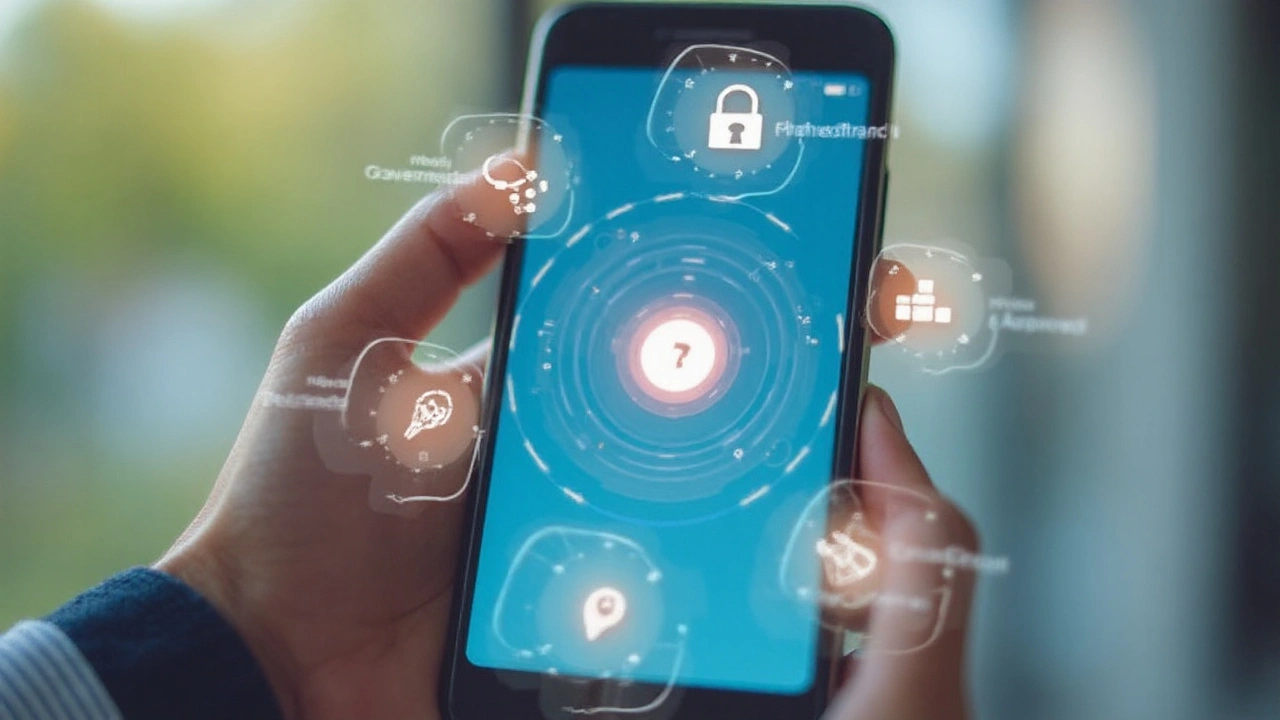You might be surprised to hear that, according to the FDA’s Office of Drug Information, more than one in five Americans have tried buying prescription meds online at least once. The reason is clear: convenience is king, and if you’re prescribed something like Betapace, running across town looking for a pharmacy with it in stock can get old fast. But if you’ve stuck your toe into the world of buying medications online, you know it’s not always simple. Questions start popping up—Is this pharmacy legit? Will my meds really arrive? Is it safe? It’s easy to get lost in a sea of sketchy websites, glowing testimonials, and deals that look way too good to be true. That’s where things can get risky—or just plain confusing.
What Is Betapace and Why Does It Matter Where You Buy It?
Betapace, which you might see listed under its generic name sotalol, is not your everyday painkiller. Doctors prescribe it to help people with certain heart rhythm problems stay out of trouble. It works by affecting the way your heart beats, which is no small job. That’s why the FDA keeps a tight grip on how Betapace gets distributed—it isn’t something to mess with casually.
If Calder ever asked me why a medicine like Betapace can’t just be picked up anywhere, I’d have to explain that heart medications can interact in weird, sometimes dangerous ways with other drugs, foods, or even supplements you’d never suspect. Missing a dose or getting a counterfeit batch could spell disaster, especially for someone already walking a tightrope with their heartbeat. And the cold truth? There’s a shocking number of fake or substandard meds floating around online. As recently as 2023, a joint WHO and FDA investigation found that nearly 10% of medications sold online were either fake, expired, or the wrong dosage. That’s more than just a minor inconvenience—it’s a real risk.
That’s not to say you should panic. Millions of people buy medications online safely every year. The trick is knowing what to look for so you don’t end up as a cautionary tale. A couple of years ago, a guy at my local gym thought he got a great deal ordering his meds from a cheap website, but the box that arrived looked like it had already traveled the world. Labels were crooked, and some pills inside were chipped. Turns out it wasn’t even the right strength—he only found out after a pretty scary heartbeat episode.
Even my cat Sable has safer standards when she tries to eat something off the kitchen counter. If legit pharmacies have hoops for you to jump through—like prescription verification, identity checks, and decent customer service—there’s a reason for that. Bad actors will often skip these steps, hoping you won’t ask too many questions about what’s really in your bottle. According to a quote from Dr. Janet Woodcock, former Principal Deputy Commissioner of the FDA:
"Consumers should be aware that purchasing prescription drugs from rogue online pharmacies can be risky. These sites may sell medications that are counterfeit, contaminated, or expired, which could seriously endanger your health."
So, which pharmacies deserve your trust? How do you spot a reliable one, and how can you avoid common traps?

How to Spot Trustworthy Sites When Buying Betapace Online
When you’re looking to buy Betapace online, you’ll find hundreds of websites claiming to have it in stock. But only a handful actually follow the rules that protect you. Here’s the deal: a reputable online pharmacy will always require a valid prescription, have a registered physical address, and offer some way for you to ask questions about your medication—either by phone, email, or live chat.
If an online store lets you order prescription medicine like Betapace without faxing or uploading your prescription, that’s a red flag as bright as a warning light on a dashboard. Reliable sites will also display approval stamps from U.S. regulatory bodies, like VIPPS (Verified Internet Pharmacy Practice Sites) or show they’re certified by the NABP (National Association of Boards of Pharmacy). Want a shortcut? The FDA’s BeSafeRx site keeps an updated list of approved online pharmacies. It’s worth checking when you’re looking up where to buy Betapace.
- Only buy from pharmacies that ask for a valid prescription.
- Always look for a physical U.S. address and real customer service channels (not just a contact form).
- Check for seals of approval (like VIPPS or NABP certifications).
- Be cautious with prices far below local pharmacy rates—if it sounds too good to be true, it probably is.
- Read user reviews on independent websites—not just testimonials on the pharmacy’s homepage.
Here’s something you might not expect: some online sites will claim to ship worldwide, but actually source their meds from countries where drug regulations are laxer. That doesn’t always mean they’re fake, but it does mean you might get a generic version that either isn’t approved by the FDA or doesn’t meet the same quality standards. Most U.S.-based pharmacies won’t ship to states or countries where Betapace isn’t approved—another sign they’re sticking to the rules.
For anyone dealing with arrhythmias, skipping days or getting the wrong dose can cause more than a skipped beat—it could mean a hospital visit. So, take five minutes to scan your pharmacy for the basics. Does the pharmacy have a license in your state? If not, your order could get stopped at customs—or worse, you might get pills you didn’t ask for. According to a 2024 article in JAMA, nearly 14% of U.S. consumers who ordered prescription meds online had some issue with their order, from delivery delays to getting the wrong product. If you’re wary about your order, reputable sites usually provide tracking and a guarantee that you’ll get a refund or replacement if something goes wrong. Wouldn’t bother with a site that won’t stand by their service, period.

Tried-and-True Tips for Getting the Best Deal on Betapace Without Cutting Corners
Nobody wants to overpay for medication, but chasing bargains on prescription heart meds can leave you with bigger problems than a lighter wallet. Don’t just hop onto the first online drugstore flashing a 60% discount on Betapace—scammers know we’re suckers for a killer deal. Here’s what actually works if you want that balance of safety, cost, and convenience.
- Price check Betapace on at least three well-reviewed online pharmacies. You’ll get a sense of the typical cost range and spot big price outliers fast.
- Call your insurance company—some insurers will only cover medicine bought from specific, approved online pharmacies. Miss this step and you could be out of luck getting reimbursed.
- Check if a generic version (sotalol) is available on the pharmacy’s site. It probably costs less and, by law, must work the same as the name brand. But always ask your doctor first if a switch is okay.
- Watch out for tricky add-ons: some sites add big shipping charges or processing fees at checkout, so don’t just trust the nice low sticker price.
- Order only as much as your doctor says you need. Some sites push bulk deals, but that’s a waste if your prescription changes soon, not to mention a storage risk with a drug like Betapace, which needs to be kept dry and away from heat.
Curious where people actually order from? The most reliable places are usually U.S.-licensed online pharmacies tied to big retail chains (like CVS or Walgreens) or legit mail-order services recommended by your health insurer. These businesses have a stake in their reputation and answer customer complaints. They’ll also tell you up front if they’re out of stock—way better than waiting weeks for a “shipment” from an unknown country.
Pharmacy discount programs are another tip worth checking. Yes, even for heart medications. Big players like GoodRx or SingleCare list up-to-date coupon codes for Betapace and sotalol. Plug those codes in at checkout, and you might shave 10-40% off your price. Just double check those codes work with online orders and not just physical stores.
If you’re wondering what happens after you click ‘buy,’ reputable sites will confirm your order within 24 hours, usually with a tracking number. Meds come in sealed blister packs or bottles, with professional-looking labels matching your prescription info. If your box shows up looking sketchy, pills are the wrong color, or there’s no ingredient sheet—stop. Don’t take the pills and report the pharmacy to the FDA’s MedWatch program.
Busy parent life means I don’t always have time to chase down new pharmacy deals, but I keep a running shortlist of legit pharmacies in my phone. Friends sometimes shoot me a text when they find good prices. My advice? Harness the power of your network—chances are someone you trust has already figured out which online pharmacy works for them, and which ones they’d avoid.
It’s worth noting, too, that legitimate online pharmacies will protect your privacy by encrypting your data at checkout and sticking to HIPAA guidelines. If a site asks for odd info (like a scan of your driver’s license) and can’t explain why, walk away. Your health history shouldn’t be up for grabs. The peace of mind you get knowing your Betapace came from a certified, traceable source is worth every penny.
So the next time your doctor scribbles out a new prescription for Betapace, you don’t have to wonder where to order it online. Just stick with pharmacies that play by the rules, keep an eye on price (and the fine print), and go straight to the source if you ever have doubts. That way, you get the med you need—no weird surprises, no risky bets, just the right stuff for your heart.

A Walton Smith
August 13, 2025 AT 20:16Good overview. Worth bookmarking.
Liliana Phera
August 14, 2025 AT 21:33Nice write-up and I love the practical tips, but let's not sugarcoat this—people sometimes treat heart meds like vitamins and that is reckless.
If you're taking something that can change your heart rhythm, you should demand accountability from the seller and the prescriber. No excuses. If a site won't show a license or refuses to speak to you on the phone, walk away immediately. The part about tracking and sealed blister packs is essential—don't accept anything less.
And yes, ask your doctor before switching to a generic. That tiny switch can matter depending on your other meds. Be proactive, not passive.
Dean Briggs
August 16, 2025 AT 01:20There's a structural issue here that the post touches on but doesn't fully unpack, and I think it's worth expanding because it shapes how we should think about buying Betapace or any critical medication online.
First, the economic incentives of online pharmacies vary wildly and produce different behaviors. Large, reputable pharmacies integrated into healthcare systems have an incentive to maintain quality because they face regulation and reputational risk; conversely, purely profit-driven offshore vendors often externalize risk onto consumers and the healthcare system. That distinction matters in practice because when something goes wrong with a cardiac drug, the downstream effects are not only physical but also financial and administrative, often involving ER visits, follow-up testing, and medication changes.
Second, informational asymmetry is real: consumers typically lack the tools to verify drug authenticity, whereas manufacturers and regulators have those tools but limited enforcement reach across borders. That creates an environment where fake or substandard products can persist because the marginal cost of deception is low relative to potential profit. Consumers trying to navigate that environment need to rely on heuristics—certification seals, verified addresses, prescription requirements—because they lack direct access to lab verification.
Third, let's consider the role of healthcare providers: doctors and pharmacists are part of a verification chain, and bypassing them for convenience removes important safety checks. Clinicians can spot potential drug interactions, suggest monitoring, and recommend alternatives; an online vendor can't do that for you in a meaningful way unless they have an integrated clinical system, which most rogue sites do not.
Fourth, the psychological aspect is underappreciated. When people see a low price, cognitive biases kick in—anchoring and the sunk cost fallacy can lead them to rationalize risks they otherwise wouldn't accept. That tendency is why seemingly trivial incentives like discounts or coupon codes matter: they change behavior.
Fifth, regulatory tools are evolving but uneven. Certifications such as VIPPS and NABP verification help, but they are voluntary seals and can be mimicked or misrepresented. The FDA's BeSafeRx is a useful reference but requires the consumer to take that extra step to consult it, and many will not.
Sixth, practically speaking, if someone must use online pharmacies due to access constraints, they should prioritize pharmacies with clear clinician access, robust customer service, traceable supply chains, and transparent return/refund policies. Insurance plan mail-order options and chain-affiliated online pharmacies usually provide the best combination of traceability and cost-savings.
Seventh, there's a community angle: sharing verified good sources among patient networks can reduce search costs and help spot bad actors faster. But crowdsourced recommendations are imperfect and can be gamed, so they shouldn't be the sole criterion.
Finally, a call to action: the system needs better consumer-facing verification tools that are easy to use and difficult to fake. In the interim, the rules in this post are solid: insist on prescriptions, check seals, ask questions, and when in doubt, prioritize safety over price. Your heart literally depends on it.
Sadie Speid
August 17, 2025 AT 05:06Completely agree with the safety-first approach.
One small, practical note: always screenshot or save the pharmacy's license page and your order confirmation. If something goes wrong it helps when reporting the problem. Also, call your insurer first — they can often steer you to an approved mail-order pharmacy that gives the best price and has real pharmacist oversight.
Sue Ross
August 18, 2025 AT 08:53This post is helpful and covers many bases. Quick question: for people traveling between states, does anyone know if an out-of-state licensed online pharmacy can legally ship Betapace across state lines? I ask because my dad lives in another state and sometimes we order meds for him.
Thanks for any clarification. I don't want to risk customs or legal issues but also don't want him to miss doses.
Rohinii Pradhan
August 19, 2025 AT 12:40Allow me to interpose a somewhat pedantic clarification that nonetheless matters practically: interstate shipping of prescription medications within the United States is governed by both federal statutes and state pharmacy practice acts, and while there is latitude for interstate dispensing, the dispensing pharmacy must typically be licensed in the state to which it dispenses or operate under a collaborative agreement that satisfies local statutes.
In terse terms, one cannot rely upon a retail website's marketing copy. One must verify licensure in the recipient state or insist upon a pharmacy that explicitly lists multi-state licensure. The NABP maintains a resource for verifying pharmacy licensure which, if consulted, obviates a great many avoidable complications.
Furthermore, I would counsel against accepting vagaries like “we ship worldwide” as a badge of credibility. Global distribution is fraught with variable regulatory regimes; if one desires legal and pharmacological certainty, procure from a domestically regulated, verifiable source.
Anna-Lisa Hagley
August 20, 2025 AT 16:26Right, the pedantry is useful. Most people skip that step and then act surprised.
Also, a lot of 'international' pharmacies will use ambiguous language to hide licensing gaps. If there's any hesitation from the vendor about providing licensure details, do not engage.
Theunis Oliphant
August 21, 2025 AT 20:13How quaint that this conversation assumes common decency among vendors. In my experience, the world is full of merchants who will say anything to a gullible buyer. One must therefore cultivate scepticism as a quotidian practice.
Buying medication is not a shopping exercise; it is an exercise in risk allocation and moral judgment. If you insist on a bargain above prudence, you accept the moral and practical consequences.
NORMAND TRUDEL-HACHÉ
August 24, 2025 AT 03:46Agree with the scepticism but let's be practical. Use certified pharmacy, check insurance, use coupon sites carefully. No drama needed.
Neber Laura
August 26, 2025 AT 11:20Most of this is common sense. Check NABP and move on
Sadie Speid
August 29, 2025 AT 22:40Short and sharp works, but some people really do need a step-by-step.
For anyone who wants a checklist: 1) verify the pharmacy's NABP/VIPPS seal, 2) call their customer service and note hold time and answers, 3) confirm they require a prescription and check how they verify it, 4) read independent reviews and check for complaints with state boards, 5) use insurer-preferred vendors if possible, and 6) inspect the packaging upon arrival and report issues immediately.
It's not glamorous but it prevents a lot of trouble.
Dean Briggs
September 4, 2025 AT 17:33Nice checklist. Two small points to add which stem from my experience helping family manage chronic meds. First, document every interaction. Save emails and confirmation numbers, and if you call the pharmacy, note the time, the agent's badge/name if given, and a short summary. This habit pays off if a shipment goes missing or the pills look off; evidence speeds resolution.
Second, consider whether a local compounding or specialty pharmacy might be a safer short-term option if supply is spotty. Specialty pharmacies sometimes handle complex cardiac meds and can liaise directly with prescribers about dosing or formulation changes. They may cost more out of pocket initially, but they also often provide clinical oversight that dramatically reduces risk.
Finally, when dealing with generics like sotalol, ask your prescriber to write the prescription in a way that specifies whether substitution is acceptable. That little note can avoid surprises at the pharmacy and ensures you get the formulation you and your clinician intended.
A Walton Smith
September 12, 2025 AT 20:15Thanks. Good tips keep it simple